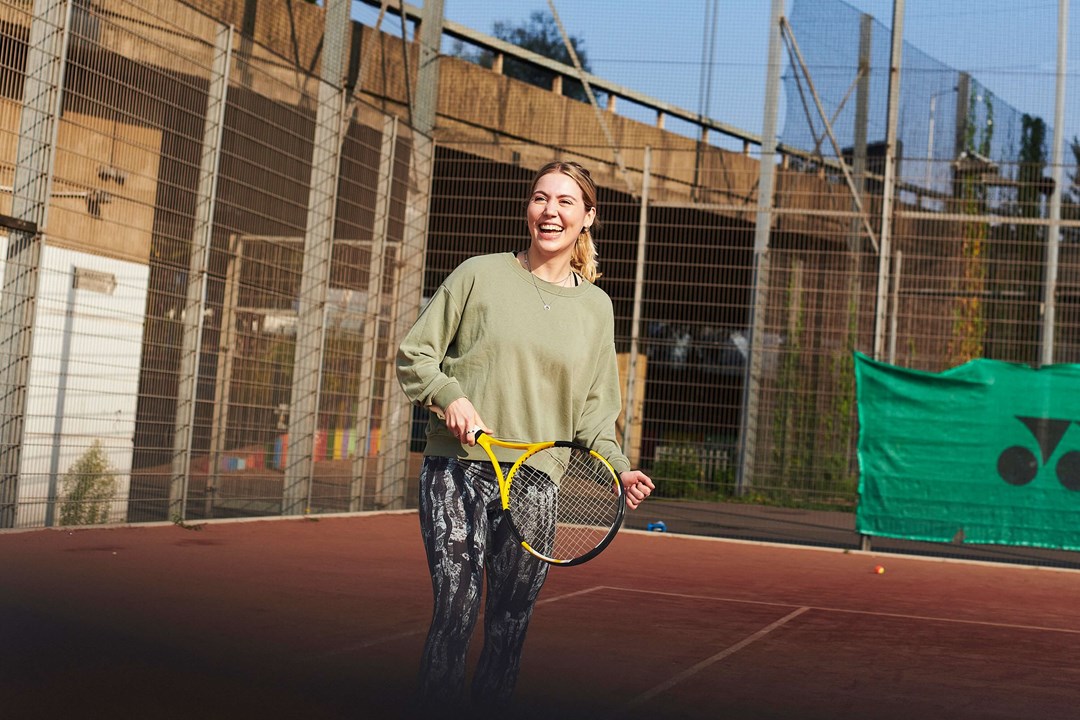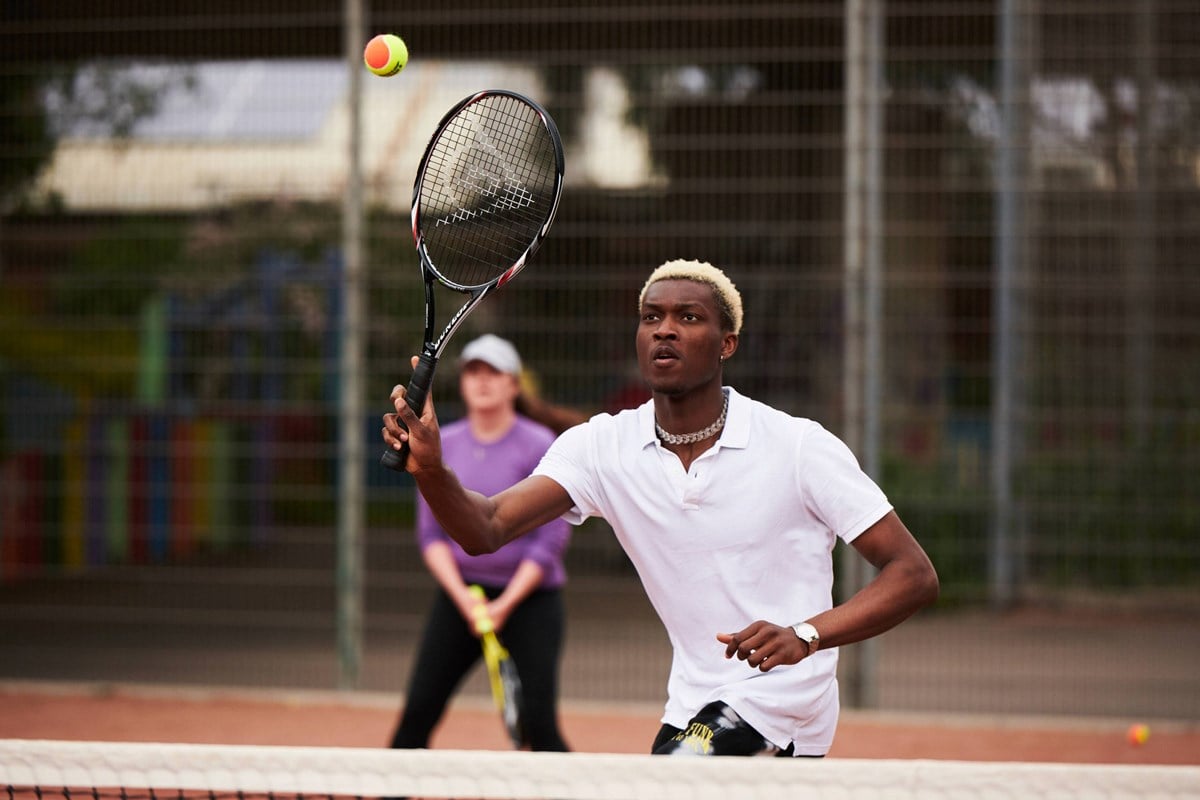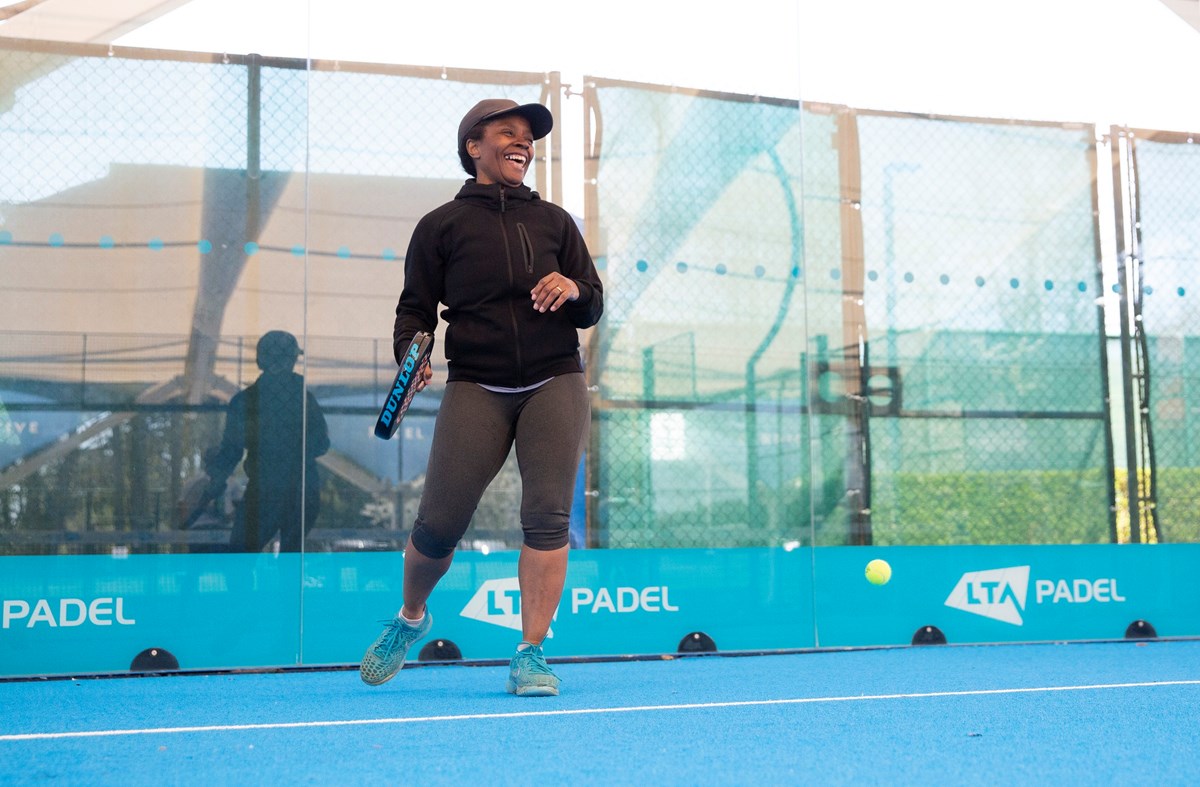
Connecting the body & mind: why movement & exercise has a positive impact on your mental health
• 3 MINUTE READ
It’s well-known that sport and exercise – like tennis or padel – can help improve your mood and have a positive impact on your mental health.
Tennis is a great way to spend time with friends and family, having a laugh and enjoying a hit on court. But aside from the obvious social benefits, what is it about the connection between the brain and our bodies that makes us feel so much better when we move and exercise?
We caught up with Lena Kessler – Sports Psychologist at our partners Changing Minds, who works with the top British tennis athletes – to breakdown the science behind why sports such as tennis and padel can improve your mental health.
Exercise: The mood booster

When you’re exercising your body will start to release endorphins, which can boost our mood and emotional wellbeing.
Being active helps increase your production of endorphins, which is why after a long, tough hit you’ll often come off court feeling positive and get what is often referred to as a ‘runners high’.
Endorphins are also a big reason why exercise reduces feelings of stress and anxiety, by targeting areas of the brain related to your stress response.
Let’s not forget that exercise also stimulates the neurotransmitter, dopamine, in your brain.
As a quick explainer – neurotransmitters carry messages between different parts of the body. They help you do things like move your body, or in this case, experience different feelings and sensations.
Dopamine is what gives us feelings of satisfaction pleasure and drives our motivation to want to do something again and do it more often. Regular exercise can have an impact on the levels of dopamine we produce so there is more available to our receptors in the brain.
In turn, after a while subconsciously your self-confidence and self-esteem will hopefully start to improve as you recognise the effort, you’re putting in to stay active. You’ll then find that you can carry this into everyday life, and it can also help you connect with other people and improve relationships.
Getting your brain working

When we talk about mental health, it’s also important to recognise the health of the brain as well as your mood and wellbeing.
In particularly, sport and exercise can be important factors in improving your memory and attention skills.
Various studies have shown us that regular exercise can increase blood flow to the brain, impact the size of certain brain regions linked with memory, and reduces cognitive decline and the risk of developing dementia.
More recent research by Boere et al (2023) has also shown that exercising outdoors can further improve the positive impact on cognition – so get yourselves down to those local park tennis courts!
Tennis & padel improve your sleep

There is a strong link exercise and sleep. We know that the more you exercise, the better-quality sleep you’ll have and in return, poor quality of sleep is linked with difficulties in maintaining an active lifestyle.
There are several reasons for this, including the impact on stress, the decrease in risk of excessive weight gain (linked with sleep apnoea) and reducing daytime sleepiness.
Why is this important? Getting a good amount of sleep is important because it helps our brains to repair, process information and restore its everyday function.
Getting a good night sleep after a fun tennis or padel session is also related to the production of a chemical called serotonin in your body. Serotonin is important in the regulation of our mood, but also in your cognition skills and levels of concentration.





